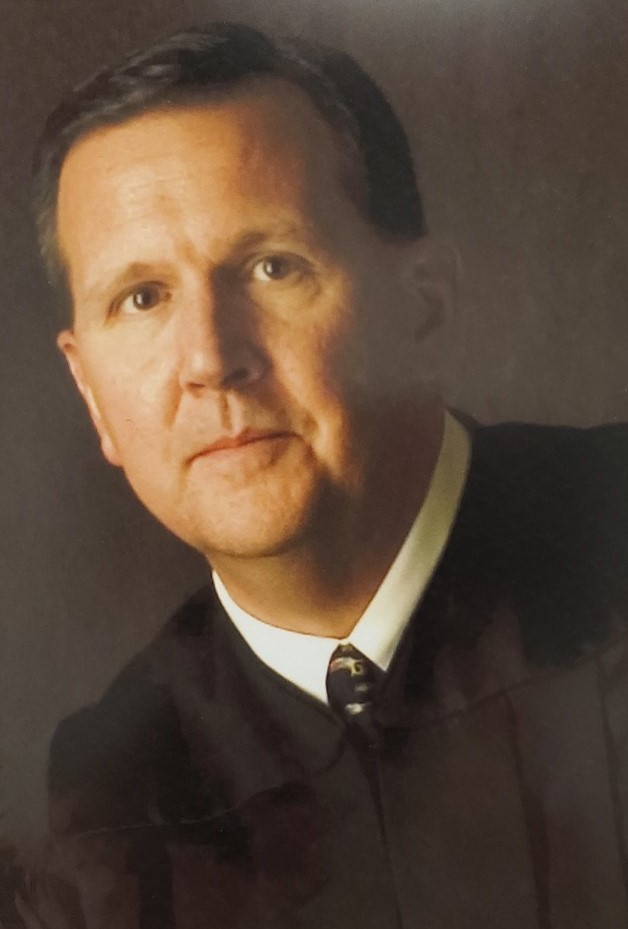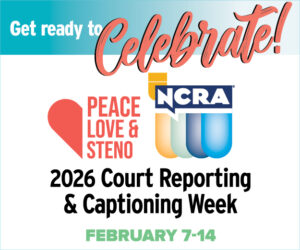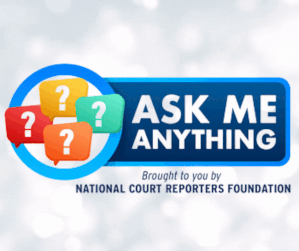In an article posted Jan. 25 by the Arizona Daily Sun, the Hon. Dan Slayton, presiding judge of the Coconino County Superior Court, was quoted as saying he believes a court reporter should be available for every court proceeding that a judge has. The JCR Weekly reached out to Judge Slayton to learn more about his thoughts on the value of a live stenographic court reporter capturing the official record versus the use of a digital recording.
JCR | How long have you served on the bench?
DS | I have been on the bench in excess of 23 years.
JCR | In a recent interview with the Arizona Daily Sun, you said that you believe a court reporter should be available for every court proceeding that a judge has and that you “have seen the value of having an actual person taking down the proceeding as opposed to a machine.” Can you elaborate more on why you think stenographic court reporting is the gold standard for capturing the record?
DS | While you can achieve an accurate digital recording, you cannot duplicate the performance of the human mind and ear. A digital recording cannot record head or body movements. It will accurately record silence, though. A court reporter, however, will report “head moves up and down,” or “head moves side to side” or “witness holds hands apart.” This communicates what was happening during the silence. Further, a court reporter can direct attorneys, judges, and witnesses to speak louder or with clarity. A digital microphone will record unintelligible speaking or speaking that cannot be heard.
Finally, while I realize that other jurisdictions have been recording hearings for some time, I simply believe the cost of having to retry a child molestation case where the six-year-old victim is forced to testify again or a civil case in which the case is reversed because the recording is unintelligible in certain significant parts and one of the litigants cannot continue the cost of the case will always be a price too high to pay.
JCR | Have you always worked with a live court reporter as an attorney and a judge?
DS | I have until recently always worked with a live reporter as an attorney and a judge.
JCR | Have you ever had any experience with digital recording in the courtroom, and if so, what was that experience like? For example, did you worry an accurate record might not get made?
DS | I have experience using digital recordings. When I began my career as a judge, I was a full-time justice of the peace and part-time superior court judge. Justice courts always used recordings. There were numerous times, even with repeated requests to address the witness or judge at the microphone, that recordings were made that were inadequate to preserve the record.
Further, there were times that the recording equipment indicated that it was recording when in actuality it was not. Finally, one of my early assignments as a superior court judge was to act as the appellate court judge for appeals taken from justice courts. In a number of those appeals, the digital record was insufficient for me to rule on the appellate issues.
JCR | We hear that many lawyers don’t even realize there is a difference between using a digital recorder and a live court reporter. What would you say to an attorney to convince them they should rely on a live court reporter?
DS | I would impress upon the attorney that they are responsible for the creation of an accurate record, as their failure to ensure their clients’ or witnesses’ answers were accurately heard and recorded could result in retrying a case. Further, a court reporter would be able to immediately, if asked, determine whether a certain topic was covered or what a specific answer was to a particular question. A digital recording would require taking more time to search the recording to find those answers. Finally, in significant cases, dailies can be requested and prepared to assist the attorneys to review and prepare for further witnesses or issues giving further clarity and accuracy to the record.
JCR | Do you think the role of a stenographic court reporter should be addressed in law schools?
DS | I absolutely believe this should be taught in law schools.
JCR | What would you say to someone seeking a new career to encourage them to look into court reporting?
DS | I am at a loss as to how to answer this question given the direction legislators and courts are going. I can only say that, while I accept and could justify that in certain proceedings (case management conferences, for example) digital recordings would be acceptable, I could never accept the risk that accompanies trials, evidentiary and motion hearings relying on only digital recording. I hope that legislators and judges will find that risk unacceptable as well.
JCR | We hear that budgetary concerns often cause courts to choose digital recording means over using a live court reporter. Do you think those concerns are valid in determining what the best method of capturing the record is for those involved in a court proceeding?
DS | I think they are valid concerns. However, I also think that, while valid, they are not dispositive as to the value live court reporters bring to our justice system, nor should the dollar count more than a victim’s testimony that must be reheard because the digital recording failed.
The Hon. Dan. R. Slayton is the Presiding Judge for Coconino County, Division Two, in Flagstaff, Ariz.


